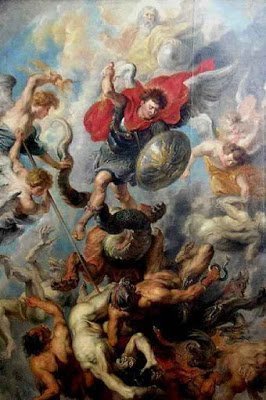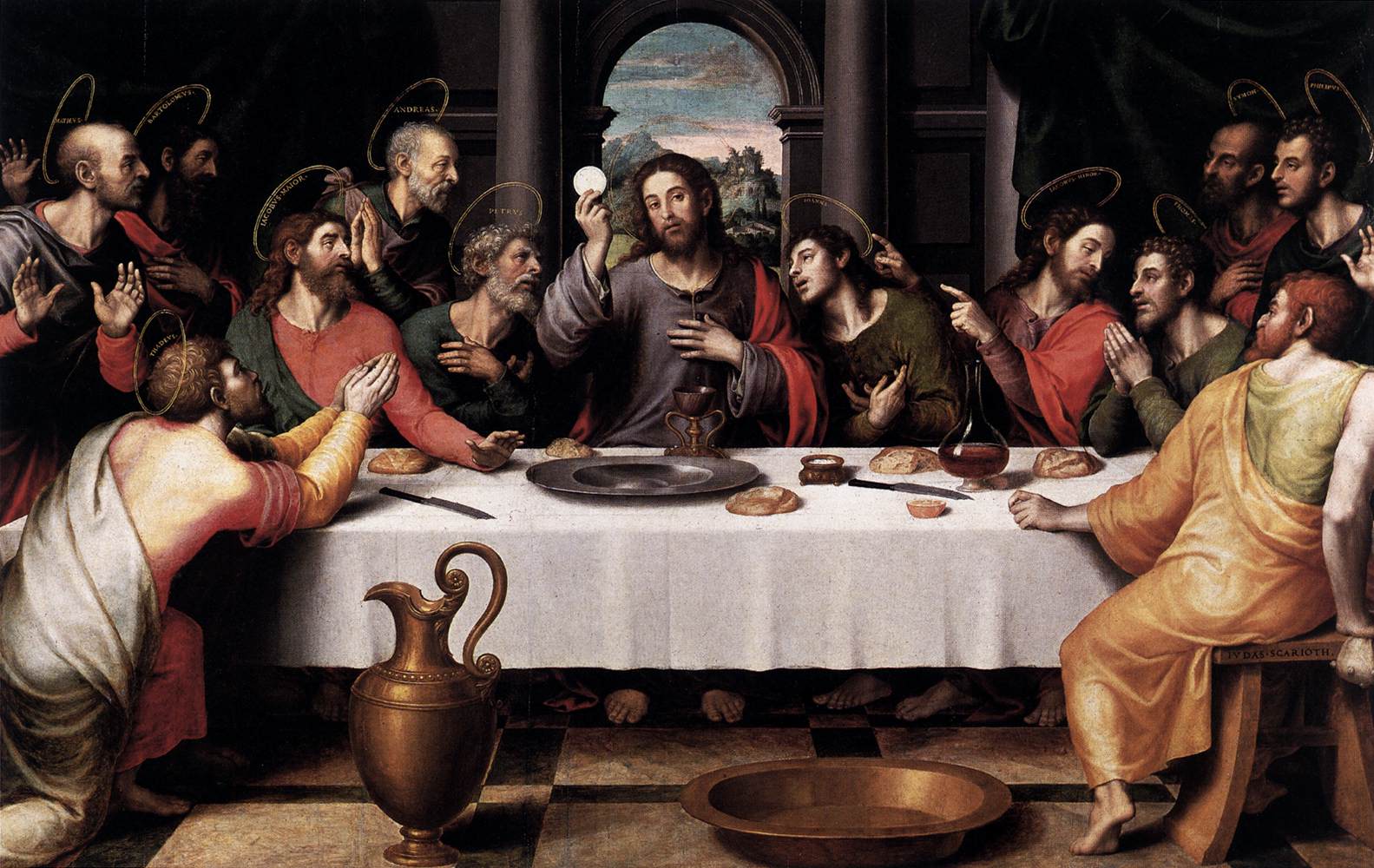The Names of Wicked Angels as are Listed in the Bible
The Names of Wicked Angels as are Listed in the Bible
Throughout the pages of the Bible, there are references to various spiritual beings, both good and evil. Among these supernatural entities, the wicked angels hold a significant place. They are depicted as fallen angels who rebelled against God and are aligned with Satan. In this article, we will explore the names of wicked angels as listed in the Bible, delving into their origins, roles, and significance.
The Names of Wicked Angels are often mentioned in the Old and New Testaments of the Bible, some of which will be cited here with references.
The Name of Wicked Angels
The Wicked Angels, in their pride to be like God, expelled them from heaven to earth, and the great evils called the angels evil, and many other names and titles contained in the Bible in the Old and New Testaments. We will remind them of the importance of knowing the characteristics and characteristics of these fallen angels.
We would like to inform you, my faithful brothers, that the devils have no authority over the children of God, in the power of the cross, their purity, and God Himself. ‘The Authority’ gave us the scarring of serpents and scorpions and all the power of the enemy!
I have written unto you, fathers, because ye have known him that is from the beginning. I have written unto you, young men, because ye are strong, and the word of God abideth in you, and ye have overcome the wicked one. (1 John 2:14). (KJV).

The Most Important Names of Satan
Satan: It means the opponent (ie 1: 6; 1 Chronicles 21: 1; Matthew 4:10; Luke 10:18).
1. Satan: It was only in the singular, and the meaning of the ejector, the experimenter, or the complainant (Matthew 4: 1).
2. The wicked: (Matthew 6:13).
3. Apollion: meaning death, and they have the same meaning (Revelation 9: 11).
4. Beelzebub: It is originally the name of the god of Ekron, the greatest of the gods of the Philistines (2 Kings 1: 2; Matthew 12:24).
5. Belial:(2 Corinthians 6:15).
6. The Angel of the Abyss: (Revelation 9:11).
7. The head of this world: (John 12:31).
8. The prince of the power of the air: (Eph 2: 2).
9. Visiting lion: (1 Peter 8: 5).
10. Who, from the beginning makes mistakes: (1 John 3: 8).
11. The head of this world: (Rev. 12: 10).
12. He was a murderer from the beginning: (Jn 8:44).
13. The serpent: (2 Cor. 11: 3).
14. The great dragon was cast out, that old serpent, called the Devil, and Satan, (Rev 12: 9).
15. A Great, fiery red dragon: (Revelation 12: 3, 9).
16. The God of this world: (2 Corinthians 4: 4).
17. That had the power of death, that is, the devil: (Heb 2: 14).
Satan and the Devil are the names of all of them, and they were called in the Bible about ninety times. There are many other names mentioned in the Bible, all of which show us the works of the devil or his qualities. You are a perfect ring, full of wisdom and full of beauty… and this is the name of Satan before his fall.
Thus, the Bible spoke of many qualities that could be referred to by scholars.
1. Lucifer, the Morning Star
One of the most prominent fallen angels mentioned in the Bible is Lucifer, also known as the Morning Star. In Isaiah 14:12, it is written, “How you have fallen from heaven, morning star, son of the dawn!” Lucifer’s name signifies his previous role as a bringer of light and beauty, but his rebellion led to his downfall. He is often associated with pride and is believed to have tempted Adam and Eve in the Garden of Eden.
2. Satan, the Accuser
Satan, derived from the Hebrew word meaning “adversary” or “accuser,” is another wicked angel mentioned in the Bible. He is often depicted as the embodiment of evil, opposing God’s divine plan. In the Book of Job, Satan appears before God, challenging the righteousness of Job and seeking permission to test his faith. Satan’s role as the accuser is also referenced in the New Testament, where he is portrayed as a tempter who seeks to lead humanity astray.
3. Beelzebub, the Lord of the Flies
Beelzebub, sometimes spelled as Beelzebul, is a name associated with a powerful and malevolent fallen angel. In Matthew 12:24, the Pharisees accuse Jesus of casting out demons by the power of Beelzebub. The name Beelzebub is believed to originate from the Hebrew phrase “Baal Zebub,” meaning “lord of the flies.” This name underscores the repulsive nature and corruption associated with this wicked angel.
4. Belial, the Worthless One
Belial, meaning “worthless” or “lawless” in Hebrew, is another name used in the Bible to describe a wicked angel. In 2 Corinthians 6:15, Belial is contrasted with Christ, emphasizing the stark opposition between good and evil. Belial is often associated with deception, seduction, and rebellion against God’s laws. The name serves as a reminder of the destructive influence this fallen angel can have on human lives.
5. Abaddon, the Destroyer
Abaddon, derived from Hebrew, means “destruction” or “place of destruction.” In the Book of Revelation, Abaddon is depicted as a powerful angel of the Abyss, the realm of the dead. He is referred to as the destroyer and is associated with chaos and ruin. Abaddon’s role highlights the consequences of turning away from God and embracing wickedness, leading to ultimate destruction.
6. Azazel, the Scapegoat
Azazel is a name mentioned in the Bible in the context of the Day of Atonement rituals described in Leviticus 16. During this ceremony, two goats were chosen—one to be sacrificed and the other to be the scapegoat. The scapegoat, symbolically carrying the sins of the people, was sent into the wilderness, bearing the name Azazel. This name represents the idea of transferring guilt and blame onto a supernatural being.
7. Legion, the Many
Although not specifically mentioned as a wicked angel in the Bible, the name “Legion” is used to refer to a group of demons encountered by Jesus in the New Testament. In the Gospel of Mark, Jesus encounters a man possessed by many demons who refer to themselves as “Legion” for they were many.
This name signifies the multitude of evil spirits working together under a unified purpose to afflict and torment individuals. While the individual names of the demons within the legion are not provided, the collective name emphasizes their destructive and oppressive nature.
8. Mammon, the Materialistic Tempter
Mammon is a term used in the Bible to represent the temptation of wealth and material possessions. In Matthew 6:24, Jesus warns against serving both God and Mammon, highlighting the conflict between spiritual devotion and worldly desires.
While Mammon is not explicitly identified as an angel, it is regarded as a wicked force that can lead individuals astray from their spiritual path by prioritizing material gain over the pursuit of righteousness.
9. Asmodeus, the Demon of Lust
Asmodeus is a name associated with the demon of lust and sexual desire. Although not mentioned in the canonical books of the Bible, Asmodeus appears in certain Jewish and Christian texts, such as the Book of Tobit.
In Tobit, Asmodeus is depicted as the demon who repeatedly kills the husbands of a woman named Sarah on their wedding nights. Asmodeus symbolizes the destructive power of uncontrolled passion and serves as a cautionary figure against indulging in immoral desires.
Conclusion
The Bible offers glimpses into the existence of wicked angels who rebelled against God and fell from grace. The names associated with these fallen celestial beings carry symbolic meaning, representing various aspects of evil, temptation, and destruction.
From Lucifer, the Morning Star who embodies pride, to Satan, the adversary who accuses humanity, and Beelzebub, the lord of corruption, each name serves as a reminder of the consequences of turning away from divine guidance.
Belial, the worthless one, symbolizes the allure of lawlessness, while Abaddon, the destroyer, represents the ultimate consequence of embracing wickedness. Azazel, the scapegoat, embodies the concept of transferring guilt, and Legion exemplifies the collective power of numerous demons working together. Mammon signifies the temptation of material wealth, and Asmodeus serves as a warning against succumbing to lust and desire.
By understanding the names of these wicked angels, we gain insight into the spiritual battles faced by humanity and the importance of remaining steadfast in our faith. The Bible offers guidance on how to resist temptation and seek God’s protection from the influence of these fallen angels. Ultimately, it is through our faith and adherence to divine teachings that we can overcome the forces of darkness and find salvation.
Related Topics
- Holy Fire Miracle in the Church of the Holy Sepulcher
- Who Is St. Valentine & What Is the Truth of Valentine’s Day
- Purify Your Hearts from Sin and Lift Them Up to God
Jesus on the Cross Loved Me and Sacrificed Himself for Me





